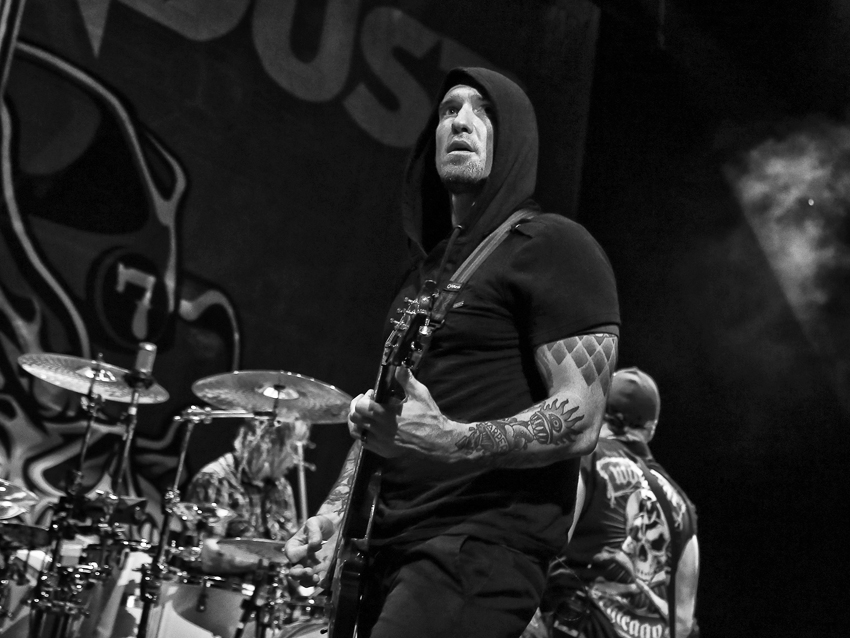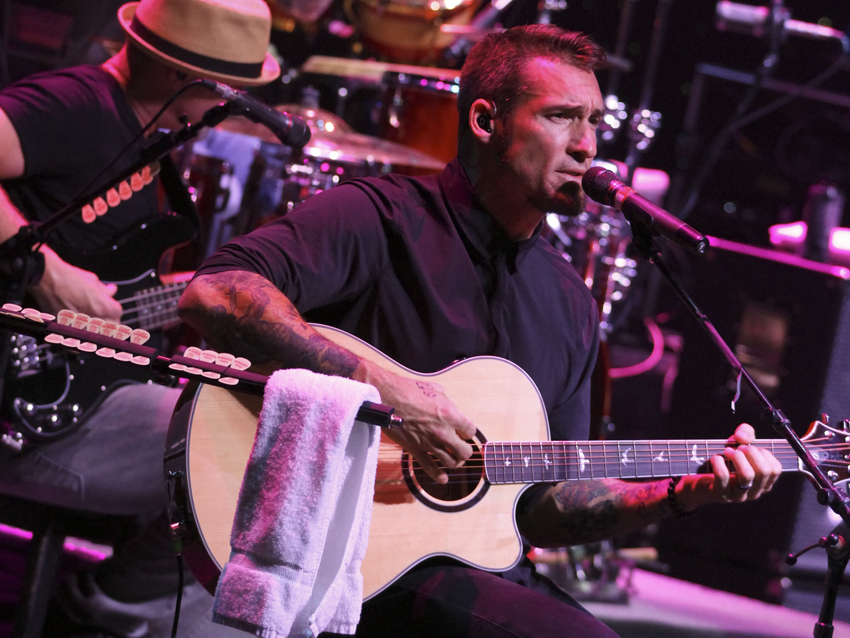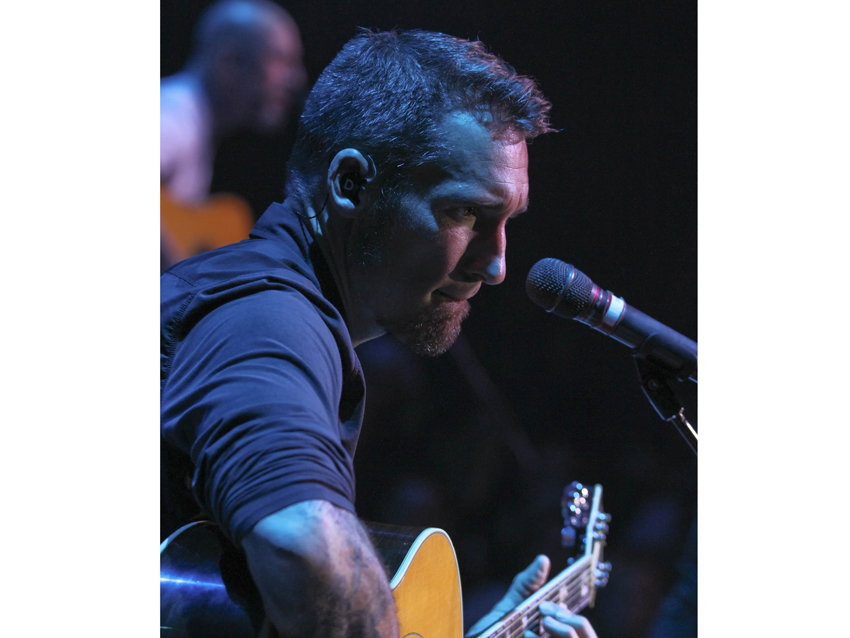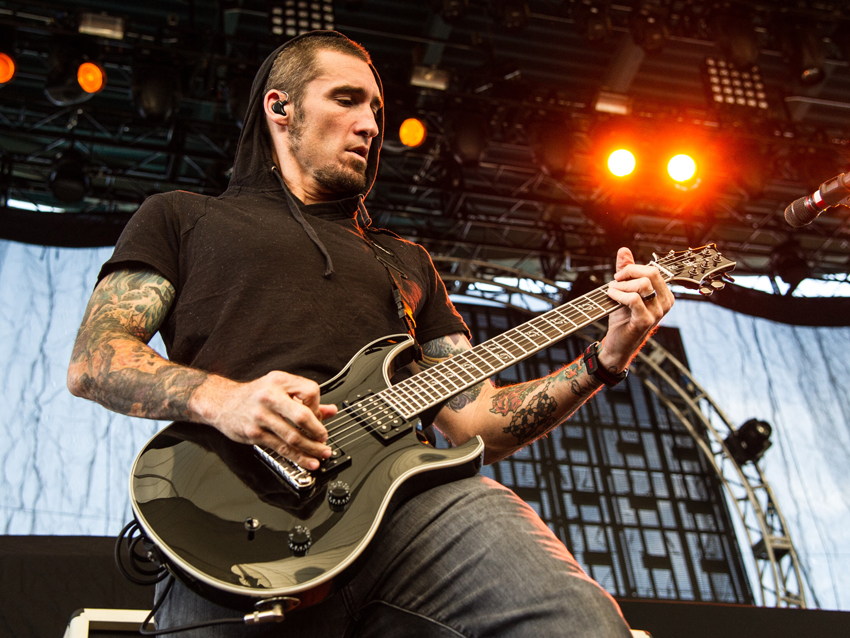
Sevendust's Clint Lowery: my top 5 tips for guitarists
Sevendust axe star Clint Lowery has the following advice to any guitarists who might think their playing has hit a brick wall: Don't fear ruts. Embrace them. "I know it sounds weird," he says, "but oftentimes when you're in a rut, it just means that a breakthrough is right around the corner.
“I’ve experimented with different ways to overcome ruts," he continues. "Sometimes I take a step back from myself and look at what other people are doing. It’s good to listen to different types of music, too – don’t just get stuck with what you play. Lately, I’ve been checking out bluegrass and country. Those genres are so different from what I normally play, but they're great because put me in a new headspace right away."
Most of all, Lowery stresses the importance of staying motivated and excited to play. "It's easy for your interest to slip from time to time," he says, "especially if you find yourself playing the same things in the same positions. That happens to me, too. But then I’ll see another guitarist do something interesting, and I’ll think, ‘Whoa, I never would’ve gone there. Let me try it.’ That’s all it takes to get me fired up about playing again. You have to challenge yourself.”
On the following pages, Lowery offers his top five tips for guitarists.

Don't get frustrated
“If you’re a beginner, it’s easy to get overwhelmed and start thinking you’ll never progress. Give yourself a break. Take the time to learn the basics. Everything from pressing down the strings properly, learning how to fret, figuring out strumming techniques and picking patterns – it’s a lot to digest. But you have to remember that doing anything well takes time and effort, and it has to stay fun.
“For a young player or somebody just starting out, there’s a whole world of muscle memory to familiarize yourself with, and it can be intimidating if you don’t go at it with the right attitude. Let yourself get through the first year of playing before you worry about tackling ‘the big stuff,’ like blazing solos and things like that. If you rush yourself, you’ll get depressed that you’re not awesome right away – and you might quit.
“Yes, push yourself, of course, but have realistic expectations. Before you know it, those barriers will fall down and things will just click. You’ll learn your first song, you’ll nail your first solo, and then you’ll be on to the next challenge.”

Play with other people
“Try to find people to jam with, whether it’s a friend, a guitar teacher, a cousin or just a guy in town that you look up. The exchange of ideas between two guitarists can be incredibly stimulating. Even if you’re just having fun, sparks will fly – things will happen. Your playing will improve at a dramatic rate when you get out of your own room and jam with other people.
“In my own case, I knew a couple of guys who were always trying to sharpen their skill sets. We’d play together, and it turned into a good, healthy competition. Even though we were trying to one-up the other guy, a lot of information was shared. Collaboration of any kind yield some pretty amazing results.”

Slow down
“Let’s be honest: It’s cool to be able to play fast. Speed is such an attractive, exciting element in guitar playing. But when you’re developing your skills, try to slow down and play with feel – don’t even think about speed. Bend notes, learn vibrato, explore tones – these are the most important aspects to guitar playing.
“Again, fast playing is great. Some of my favorite players can rip all day long. But the best fast playing is built on taste and intelligence. Take Steve Vai: Each note he plays means something. Every note has its own area code. He’s decisive, smart and emotional – at any speed.
“Also, if you try to play fast before you’ve mastered the fundamentals, you probably won’t hit every note with precision. You’ll gloss over notes, and that'll just make everything you play sound like a big, sloppy mess. So slow down and play with feel. There will be time to burn.”

Attitude counts
“When you play with feel and energy, your body language will convey a connection to the music. I like to see somebody perform when they play the guitar. It doesn’t have to be this big theatrical event; it’s really just an attitude.
“Jimi Hendrix was the king of cool and swagger. His body language connected to the music that he played, and it enhanced his funk and his groove. He was into it mentally, physically, spiritually – his heart and soul ran through the music.
“Some people are awkward when they play; they either wear their guitar too high or they stare at it. To me, it’s about getting into it, whether you jump all around or if you just shift your feet a little bit. It can be about subtleties, or it can be about really big, weird things. You can be an oddball on stage – it’s all good. But it all comes down to attitude, and attitude relates directly to how connected you are with your music.”

Practice, practice, practice
“This is the number one top, but I saved it for last. Practice as much as you can. Spend as much time as you can with a guitar in your hands. There’s a lot of people who want to play guitar, and there’s a lot of people who already play really well. It’s a highly competitive field, so if your goal is to be a professional guitarist, you have to be willing to play eight hours a day.
“Some people have natural ability – put a guitar in their hands and incredible music just comes out. Other people have to really work at it and hammer away. If you’re in the latter camp, and I would say most people are, you need to dedicate yourself to getting better.
“It shouldn’t be work – if you love doing something, you’re going to want to do it. But you should try to set and meet your goals. Put in the time. There is no substitute for woodshedding and honing your style.”
Joe is a freelance journalist who has, over the past few decades, interviewed hundreds of guitarists for Guitar World, Guitar Player, MusicRadar and Classic Rock. He is also a former editor of Guitar World, contributing writer for Guitar Aficionado and VP of A&R for Island Records. He’s an enthusiastic guitarist, but he’s nowhere near the likes of the people he interviews. Surprisingly, his skills are more suited to the drums. If you need a drummer for your Beatles tribute band, look him up.
